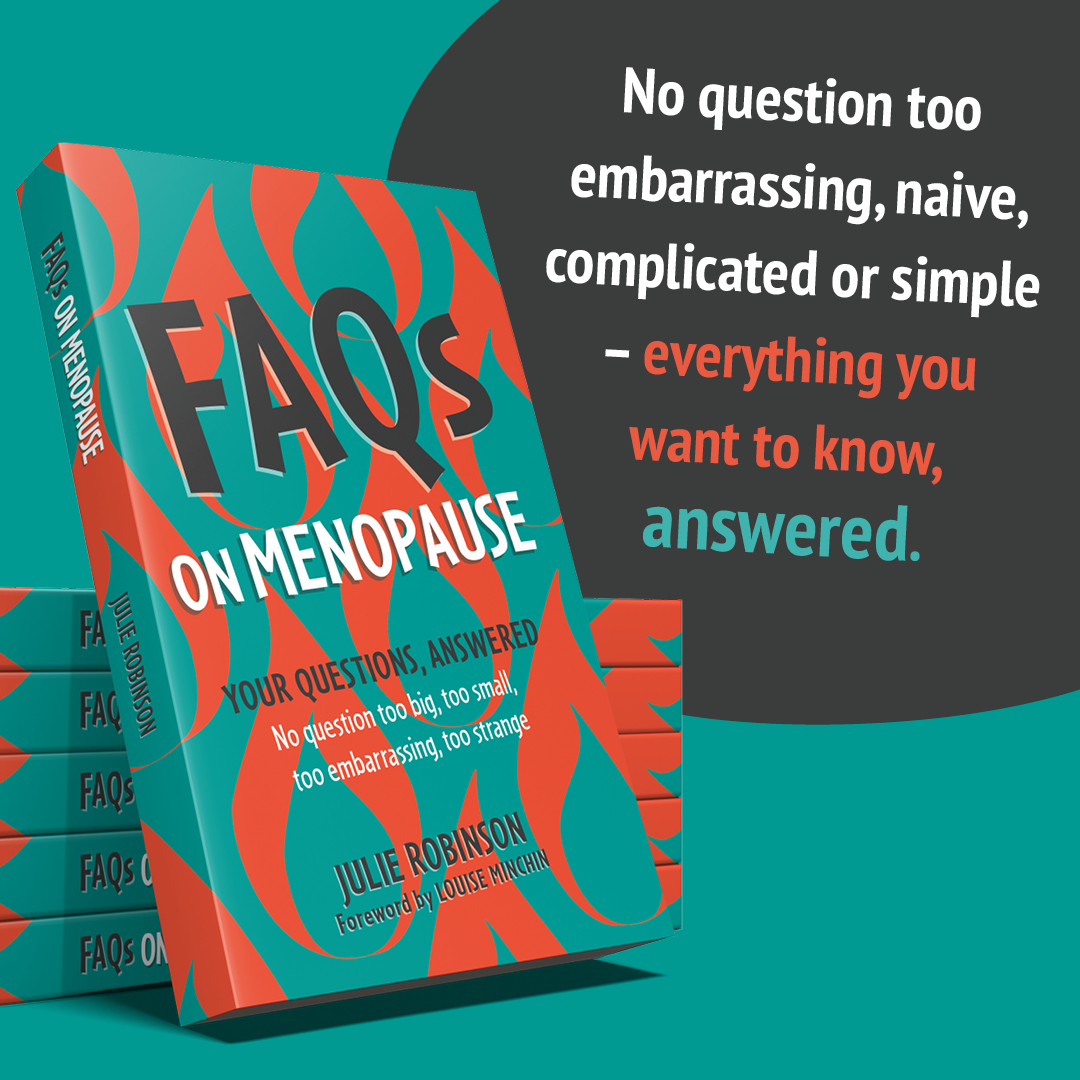 Buy now
Buy nowI can’t figure out if I’m no longer happy in my relationship or just generally unhappy because of my menopause.

Julie’s answer: I’m sorry to hear that you’re feeling uncertain about your happiness in your relationship and are also going through the challenges of menopause. It can be difficult to differentiate between personal emotions and the impact of hormonal changes.
Firstly, it’s important to acknowledge that menopause can bring about various physical, emotional, and psychological changes. Hormonal fluctuations can affect your mood, energy levels, and overall sense of wellbeing. These changes can undoubtedly influence how you perceive your relationship and your general happiness. It might be helpful to consult with a healthcare professional or a menopause specialist who can provide you with accurate information and support during this transitional phase. Find a menopause specialist here.
While it’s normal to experience some ups and downs in any long-term relationship, it’s crucial to evaluate the overall health and satisfaction within your partnership. Reflect on your relationship’s dynamics, communication patterns, and the fulfilment you get from it. Consider whether your concerns and dissatisfaction are primarily linked to the changes you’re experiencing due to menopause, or if there are deeper, relationship-specific issues that are contributing to your unhappiness.
Open and honest communication is key. Try discussing your feelings with your partner, explaining the difficulties you’re facing during menopause and how they might be affecting your emotions. Sharing your concerns can foster understanding and empathy between you, and your partner may be more willing to support you through this challenging time. If you need further support, get in touch with Relate who have a library of free resources as well as paid-for therapy and counselling sessions.
It might also be beneficial to explore self-care practices that can help alleviate some menopause symptoms and improve your overall wellbeing. Engaging in activities like exercise, mindfulness, and relaxation techniques can provide a sense of balance and calm, which may positively influence your perspective on your relationship.
Don’t go through this alone, talk with friends or if you prefer, join our MenoSisters group as it’s always good to know that others are feeling just like you.
Lastly, if you find that your unhappiness persists despite addressing menopause-related issues and having open discussions with your partner, it could be valuable to seek professional help. A therapist or counsellor can assist you in navigating your emotions, clarifying your needs and desires, and determining whether staying in your current relationship is the best choice for your long-term happiness.
Remember, your wellbeing is of utmost importance. Take the time to care for yourself, seek support from loved ones, and consider professional guidance to help you gain clarity and make informed decisions.
If you’re feeling unsure about how to navigate menopause, get a copy of FAQs on Menopause. No question is too embarrassing, naive, complicated or simple – everything you want to know answered.